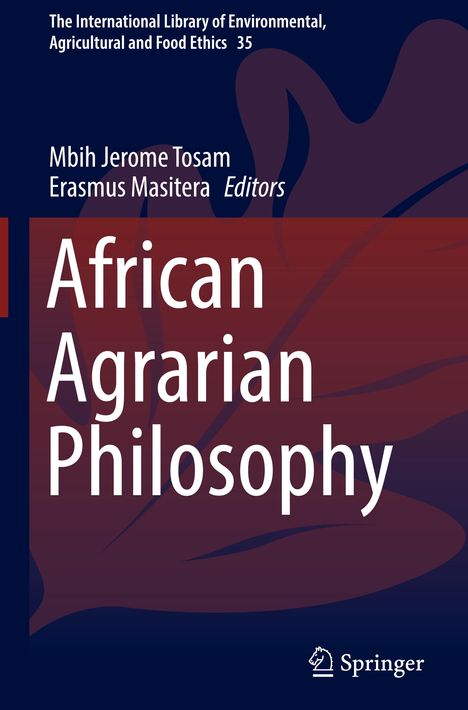African Agrarian Philosophy
African Agrarian Philosophy
Buch
- Herausgeber: Erasmus Masitera, Mbih Jerome Tosam
lieferbar innerhalb 2-3 Wochen
(soweit verfügbar beim Lieferanten)
(soweit verfügbar beim Lieferanten)
EUR 131,42*
Verlängerter Rückgabezeitraum bis 31. Januar 2025
Alle zur Rückgabe berechtigten Produkte, die zwischen dem 1. bis 31. Dezember 2024 gekauft wurden, können bis zum 31. Januar 2025 zurückgegeben werden.
- Springer International Publishing, 02/2024
- Einband: Gebunden, HC runder Rücken kaschiert
- Sprache: Englisch
- ISBN-13: 9783031430398
- Bestellnummer: 11750027
- Umfang: 440 Seiten
- Nummer der Auflage: 24001
- Auflage: 1st ed. 2023
- Gewicht: 902 g
- Maße: 241 x 160 mm
- Stärke: 28 mm
- Erscheinungstermin: 1.2.2024
- Serie: The International Library of Environmental, Agricultural and Food Ethics - Band 35
Achtung: Artikel ist nicht in deutscher Sprache!
Klappentext
This book explores indigenous sub-Saharan African agrarian thought. Indigenous African agrarian philosophy is an uncharted and largely overlooked area of study in the burgeoning fields of African philosophy and philosophy of nature. The book shows that wherever human beings have lived, they have been preoccupied with exploring ways to ensure the sustainable management of limited resources at their disposal, to attain to their basic needs: food, shelter, and security. The book also shows that agriculture and the way people relate with nature are an essential, but generally neglected, determinant of the emergence and orientation of all philosophical traditions. In traditional, pre-colonial African culture, it was difficult to separate agriculture from African relational ontology. Agriculture and the use of natural resources were at the centre of community life and influenced the social, political, economic, and spiritual worldviews of the people. In their contact with nature through agriculture, different beliefs, knowledge systems, norms, moral outlooks, cultural practices and institutions emerged and have been valorized to guide societies on how to sustainably manage the environment. As a way of life, then, agriculture was deeply connected with indigenous beliefs, values, and practices which transcended a wide range of issues related to ecological ethics, food ethics, religion, traditional medicine, political economy, social organisation, biological reproduction and species survival, indigenous knowledge, and property rights. This book will thus be a valuable resource for policy makers and researchers in diverse fields such as philosophy, geography, sociology, anthropology, and development studies.
African Agrarian Philosophy
EUR 131,42*

